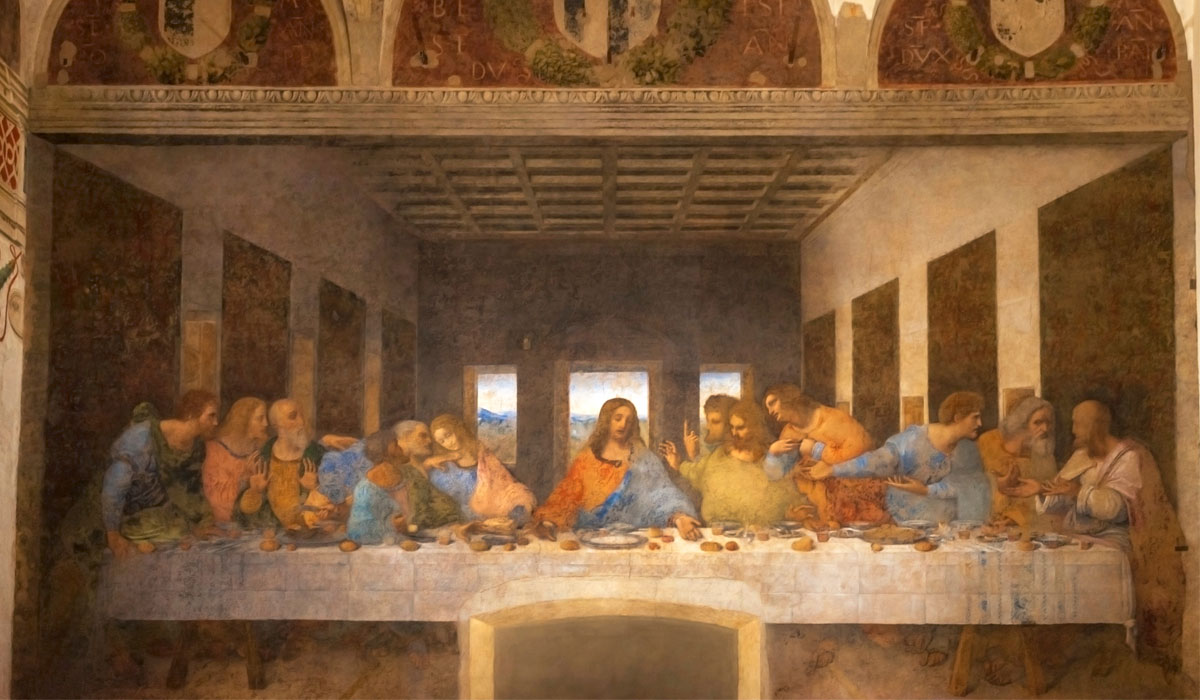Intriguing Scriptures, Part Three: Dr. Derek McNeil

As Dan continues our summer series talking with friends and colleagues about Scripture passages that intrigue them, he is joined by Dr. Derek McNeil, Senior Vice President of Academics at The Seattle School of Theology & Psychology—and, in Dan’s words, “a very clever, wise rebel”—to talk about an often unsettling conversation between Jesus and the disciples in Luke 22:24-34. Dan says he would have picked the same section if he had to choose one for this series; it’s one of his favorite passages, and one that has enabled him to stay with the Gospel.
Derek: “It’s interesting how, in my own changing, I approach the text with different questions. The questions are more complex, and I think I have more tolerance for an uneasy answer. The way the text has hit me and impacted me has shifted—and is shifting.”
Derek shares about sitting with this text as he was wondering about the nature of resilience for a new project The Seattle School launched this summer. In this passage, he sees resilience in Simon Peter’s ability to care for others even after hitting the rock-bottom of betrayal. In order for that to happen, Peter is forced to let go of a sense of himself as invincible and self-confident; he has to face his own capacity to betray.
The questions are more complex, and I think I have more tolerance for an uneasy answer.
Derek: “There are moments where you feel like you don’t have options. You’re fragmenting and falling apart. […] You go through things and struggle and suffer, and you feel sifted and fragmented and disoriented. Jesus, in a very intimate way, speaks to Peter, ‘But you, Simon Peter, I have prayed for you particularly,’ that your faith, or your trust, or your sense of me would not fail. I think it’s much more than ideological belief, much more embodied.”
Dan: “Is it possible to be resilient without having owned your own betrayal?”
Derek: “I don’t believe so.”
Dan and Derek also discuss the quarreling of the disciples. After three years with Jesus, they are still living in an ascribed power context, arguing about who is the greatest. But Jesus is changing the game. After empowering and naming them as people of value despite their class or background, Jesus then flips it on them again: that new sense of worth and dignity is not to be lorded over others, but to be held in a posture of service.
Derek: “What do I want to create in the cultural spaces that I live in? How do I serve the people I bring into the cultural spaces I’m responsible for? How do I facilitate something on their behalf? How do I, in some ways, be a person who thinks about their developmental wellbeing? […] It becomes a kingdom of service.”
Derek and Dan reflect on how rare it is to connect these categories of betrayal, resilience, and service. It’s a crucial connection, though: stepping into the new model Jesus introduced to the world, we must first own both our capacity to betray and our vulnerability to betrayal. It is then that, rather than shrinking into shame and condemnation, we can live into the generous, gracious dignity of Christ.
Derek: “God does not struggle with the shame issues that we struggle with. My feelings of shame are not the feelings that God has for me. Facing that means that you have to face through it, because Christ is not looking away from us—we are looking away from Christ. We have to find a way to turn back, to look again into the eyes of someone who has not left us, but we have left because we cannot hold our shame. It is pretty potent stuff.”
Dan: “[And then we are told,] you not only have a place back with me, but you have a place back to feed your brothers and sisters. There’s something inside that wants to scream, ‘This is such good news, and I don’t know if I want it,’ because it requires a deeper entry into betrayal.”
